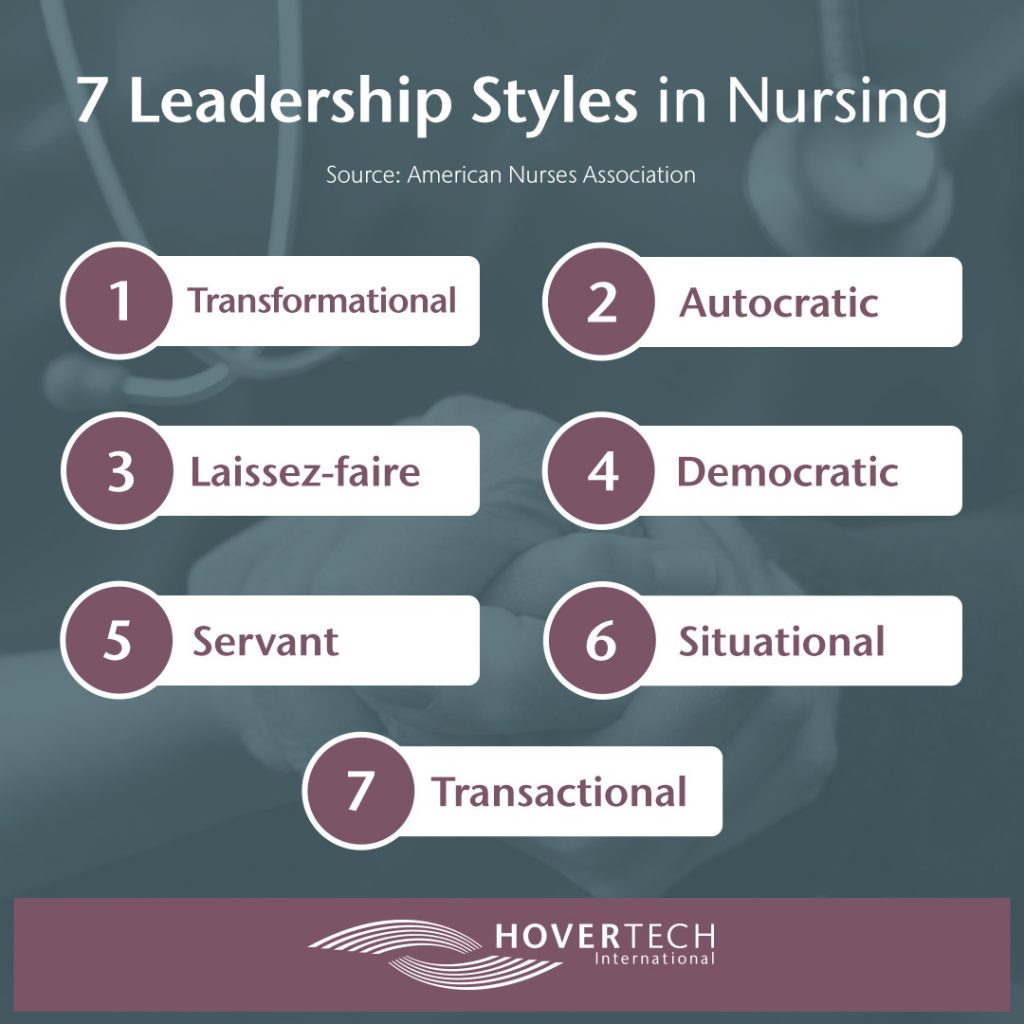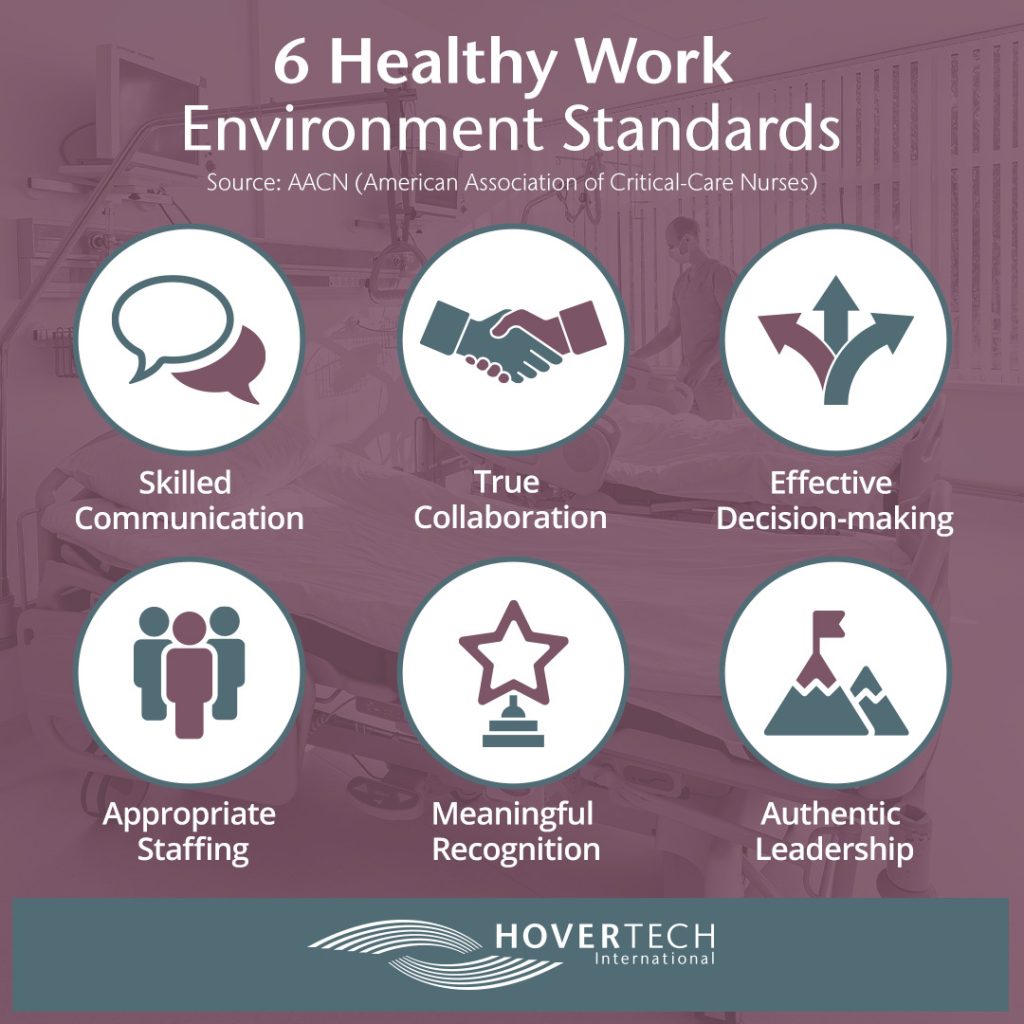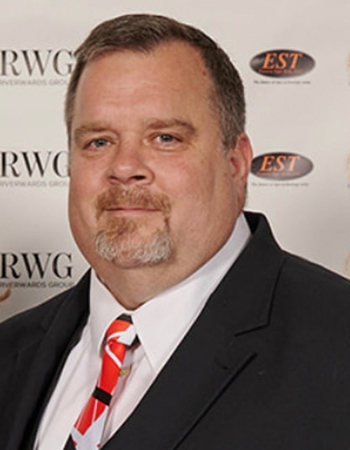Becoming a Stronger Nurse Leader
Ready to sharpen your workplace leadership skills? Read on for time-proven nursing career tips – including the one trait considered non-negotiable among effective nurses. Listen to the full on-demand webinar to earn one contact hour.
It can be hard to pinpoint what makes a good nurse leader. Words like transparent, honest, and humble come to mind, yet most of us agree that they don’t entirely cut it. Rather, we know a good nurse leader when we see one. So what is that certain something embodied by the most effective executives and managers, organizers and motivators?
Getting to the answer starts by recognizing the wide variety of nurse leader types. The American Nurses Association (ANA) organizes healthcare leaders into seven categories:

Transformational
Works to inspire, develops others’ strengths, and brings larger visions and goals to pass. Great mentors and mentorship program leaders.
Autocratic
Makes quick decisions independently and excels at task delegation. Go-to in emergencies.
Laissez-faire
Puts faith in processes and protocols; well-suited for experienced and self-directed teams.
Democratic
Collaborative and focused on team success. A great asset for group and institution-wide efforts.
Servant
Focuses on employee development and individual needs; often effective educators and a fit for environments that prioritize personal goals.
Situational
Assesses the situation and makes decisions accordingly – an evergreen asset.
Transactional
Focuses on efficiency and performance, advancing short-term goals and frequently hitting tight deadlines.
Anecdotally, Transformational, Servant, and Situational leadership styles are the most common among nurses.
NURSE LEADER NON-NEGOTIABLES
Of course, it’s one thing to have a leadership style. It’s another to be a strong nurse leader.
Various professional organizations offer many different definitions of what defines a good nurse leader. Notably, almost all of their definitions overlap with the six healthy work environment standards outlined by the American Association of Critical-Care Nurses:

Skilled communication
Interpersonal maturity and strength matched by clinical know-how.
True collaboration
A relentless pursuit of teamwork that’s continually fostered and prioritized.
Effective decision-making
The ability to make decisions steadily and efficiently – and to commit to those decisions.
Appropriate staffing
Not just ratios of caregivers to patients, but optimized pairings of patient needs and nurse competence.
Meaningful recognition
A willingness to acknowledge and recognize team members in ways that resonate.
Authentic leadership
The act of being human while interacting with fellow humans.
That last standard – authentic leadership – is the recent focus of much industry-wide attention. In an age when healthcare is being widely criticized as impersonal and profit-driven, it’s becoming clear that leadership in healthcare must be authentic, and that authenticity is a key (if not the key) to strong nursing.
Here’s why.
WHY AUTHENTICITY?

“The number one thing your staff, co-workers, and patients want is for you to be genuine,” says Michael F. Kirk, MSN, RN, CNML and Nursing Director of Intensive Care Unit for Virtua Mount Holly Hospital in New Jersey (Kirk was awarded the Virtua Nurse Excellence Award Transformational Leadership in 2021). “They know when you’re not being genuine – so you have to find it within yourself to relate from a place of true compassion, empathy, and care. Then and only then will you gain trust and respect.”

Tom Maxwell, MSN, MA, RN, NPD-BC and Nursing Professional Development Specialist Advanced Nurse Clinician (and 2020 winner of a Continuous Learning & Innovation Award), agrees.
“Nurses must recognize what people are going through and strive to acknowledge and alleviate it,” he says. “During the COVID-19 pandemic, I instituted a quick huddle once per shift on our unit to check where we stood on PPE and ventilator availability, but also to ask about the state of everyone’s stamina and mindset. It felt small, but later I heard from staff that they took comfort in that moment.”
Feel you have room to improve your authenticity at work? Check out these tools from the Berkeley Well-Being Institute for becoming more authentic in your career and in life as a whole.
MORE WAYS TO STRENGTHEN NURSE LEADERSHIP SKILLS
Beyond the pursuit of authenticity, there are many ways nurse leaders (and aspiring nurse leaders) can grow their leadership skills:
Continuing education.
Attend national conferences and webinars – like this one! Consider an advanced degree or specialty.
Join professional organizations.
The American Association of Colleges of Nursing (AACN), American Nurses Association (ANA), and the American Organization for Nursing Leadership (AONL) are among the most reputable. Most professional organizations let you meet and learn from professionals with vast experience who are usually generous with insights and support.
Avoid YOU language.
Using “you” in workplace discussions can put conversation partners on the defensive. Skilled leaders reframe statements using I and Let’s. In these more evolved conversations, “You’ve been doing this the wrong way,” becomes “What works best for me is when I…” Another example: “You want to reconsider that,” becomes and “Let’s think about different ways to…”
Remember the 5 Rights of Communication.
Before you engage in any workplace conversation, ask yourself:
What’s your intent?
Get clear on your goals – that is, what you hope to achieve in the conversation. Are those goals constructive?
Are you talking to the right person?
Is this the best point of contact for your communication goals?
In the right place?
Office? Café? Parking lot? Where you talk matters; choose thoughtfully.
At the right time?
A nurse whose patient recently coded might not be up for discussions about scheduling.
Are you leading with the right emotions?
Is your head clear and your mood even?
Read about skilled leaders.
There are amazing leaders in healthcare and beyond whose memoirs offer nuggets for valuable takeaway. Tom Maxwell recommends:
- Emotional Intelligence: Why It Can Matter More Than IQ by Daniel Goleman
- Extreme Ownership: How U.S. Navy SEALS Lead and Win by Jocko Willink and Leif Babin
- The 7 Habits of Highly Effective People by Steven R. Covey
Use behavior assessment tools.
The DiSC Profile test, the Myers-Briggs Type Indicator and the Enneagram of Personality are popular resources for understanding what makes people tick. Many healthcare organizations offer these assessments to employees, then help them leverage results to achieve stronger relationships moving forward.
Seek meaningful contacts. Intentionally stay in touch.
A contact in your organization’s finance department can prove helpful when you need added resources.A relationship with the dietary team can help support a patient with unique nutrition needs. Think past your immediate peers to pursue professional relationships elsewhere in your workplace and beyond.
Ask questions.
Speaking up. Asking questions. Admitting when you don’t have the answers. These have all been normalized these past few years. Take advantage of this culture shift as you work.
Have a social support system.
Leadership can be lonely. Know who you can count on for your needs – work-related and emotional – and lean on them as needed.
Stay on top of changing times.
Every aspect of healthcare is evolving at a breakneck pace. Beyond medical upskilling, keep your finger on the pulse of best practices in technology, ethics, even billing.
Develop hiring skills.
If hiring is among your responsibilities, work to develop this unique skill set. New hires do, after all, go a long way toward strengthening or weakening a team.
Develop and maintain boundaries.
You’re human. Get clear on your personal limits. Do what you need to do to achieve a healthy work-life balance. Discomfort, resentment, and guilt are often signs of weak or ill-defined boundaries.
These are just a few of the ways that nurses can strengthen their leadership skills. For a more in-depth talk and to earn one free contact hour, listen to the full on-demand webinar.

